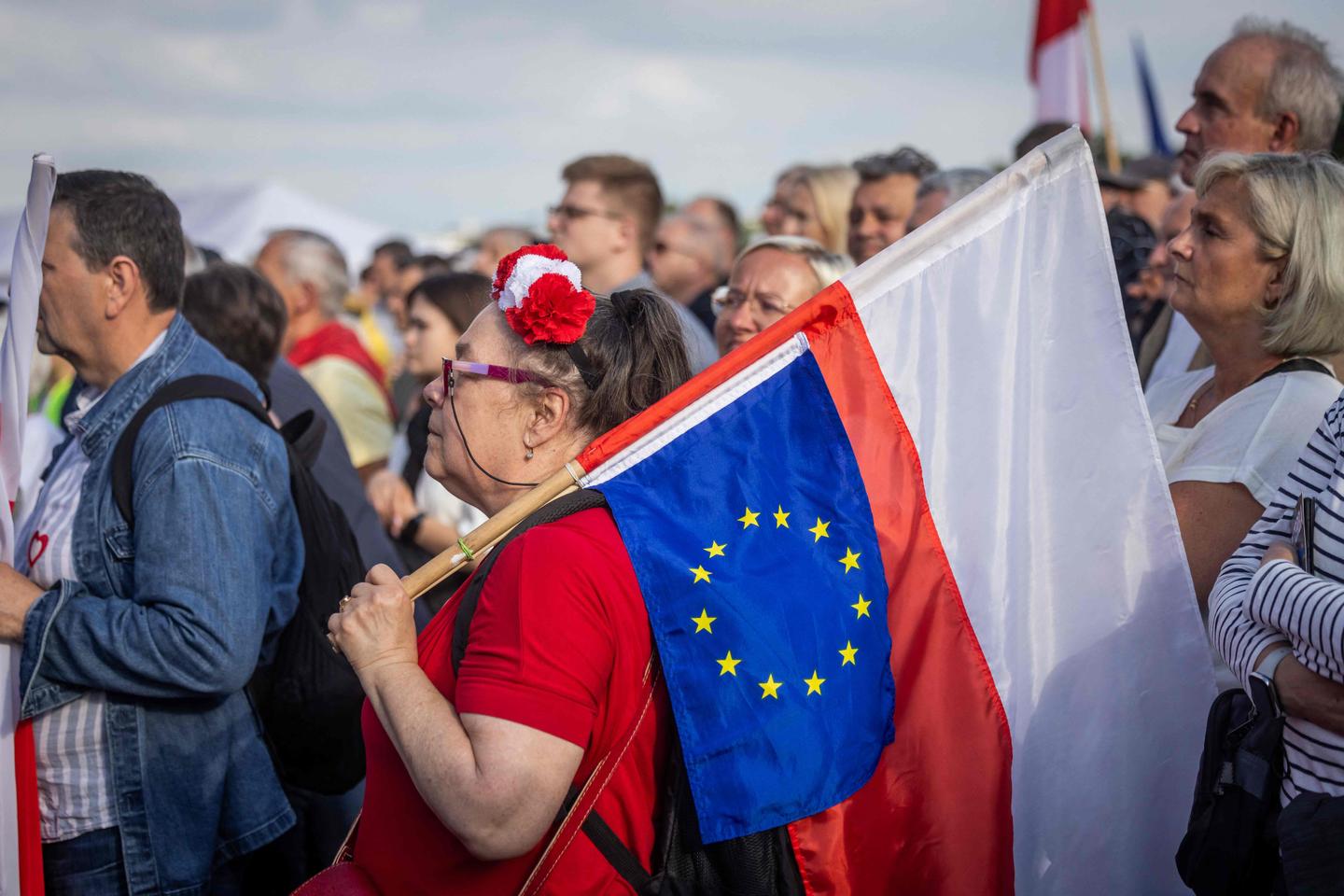“This is the most important European election in history.” With over 360 million Europeans due to go to the polls from June 6 to June 9 to elect 720 MEPs, the French lead candidates all sought to dramatize the vote. From Valérie Hayer, for the presidential majority, to Jordan Bardella for the Rassemblement National (RN, far right), via Marie Toussaint (Europe Ecologie-Les Verts, EELV, France’s Green party), François-Xavier Bellamy (Les Républicains, LR, right-wing), Manon Aubry (La France Insoumise, LFI, radical left) and Raphaël Glucksmann (Place Publique and the Parti Socialiste), they repeated the phrase over and over again, seeking to mobilize their troops and disprove abstention projections.
It’s true that, for each of them, the stakes of this election are major: President Emmanuel Macron’s credibility on the European stage is at stake. The RN sees itself marching toward the Elysée Palace. The Greens are threatened with extinction. And the Socialists dream of it being the starting point of a renewal. But what about the European Union?
“It is fair to say that the EU is possibly in the most decisive phase in 70 years of integration history. The number and severity of the many crises, challenges and upheavals it is facing at the same time are unprecedented,” wrote Malte Tim Zabel, an expert on European issues, on the Bertelsmann Foundation website at the end of April.
There are many factors challenging the Union to reinvent itself: the war in Ukraine on its doorstep, the Israel-Palestinian conflict, Europe’s economic stall, the US’s growing disinterest in its European allies, the prospect of Donald Trump’s election, China’s commercial and diplomatic offensive on the world stage and not to forget climate change. “Europe is mortal,” said Macron. “History is accelerating, and we risk France and Europe fading away,” said Bardella.
- Breakthrough for the far right
Against this backdrop, the polls are predicting an unprecedented breakthrough for the far right. It is expected to come out on top in at least two of the EU’s founding countries, France, where the RN is well ahead of the majority’s list, and Italy, where Fratelli d’Italia, the post-fascist party of Prime Minister Giorgia Meloni, is tipped as the clear winner. Belgium’s Vlaams Belang, the Dutch Party for Freedom (PVV), Portugal’s Chega, Spain’s Vox, the Alternative for Germany (AfD), Poland’s Law and Justice (PiS) and Konfederacja and Hungary’s Fidesz are also expected to send large contingents to Strasbourg.
You have 80.54% of this article left to read. The rest is for subscribers only.

